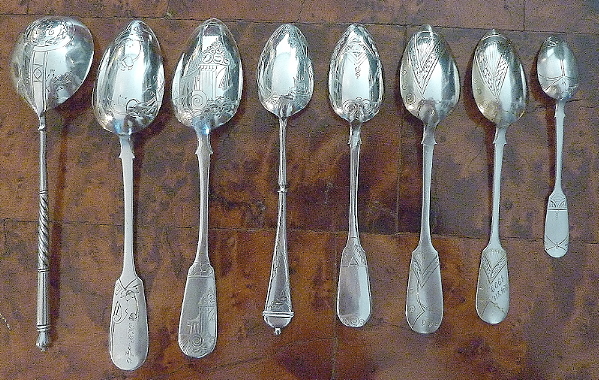Who is the maker of this Russian silver spoon? It’s of good quality solid silver.
Thanks for looking.





NO, I have no intention whatsoever to change my mind. You should learn the styles. Look what you wrote above. I have enlarged some of your words. Now try to understand we are talking about Art Deco, an abbreviation of Art Decorative. Unfortunately you are talking about something that is in France called Art Nouveau, in England Arts and Crafts also Morris style. Maybe I have to say it in German:Goldstein wrote:Hi -
just to remember:
the 9th Moscow Artel (1910-16) worked only in art nouveau and traditional style (tea-strainers, sugar tongs, spoons).
The 2nd, 5th, 11th, 13th, 14th and 15th Artel worked also only in art nouveau style.
Maybe you should change your mind based on the facts.....
Regards
Goldstein